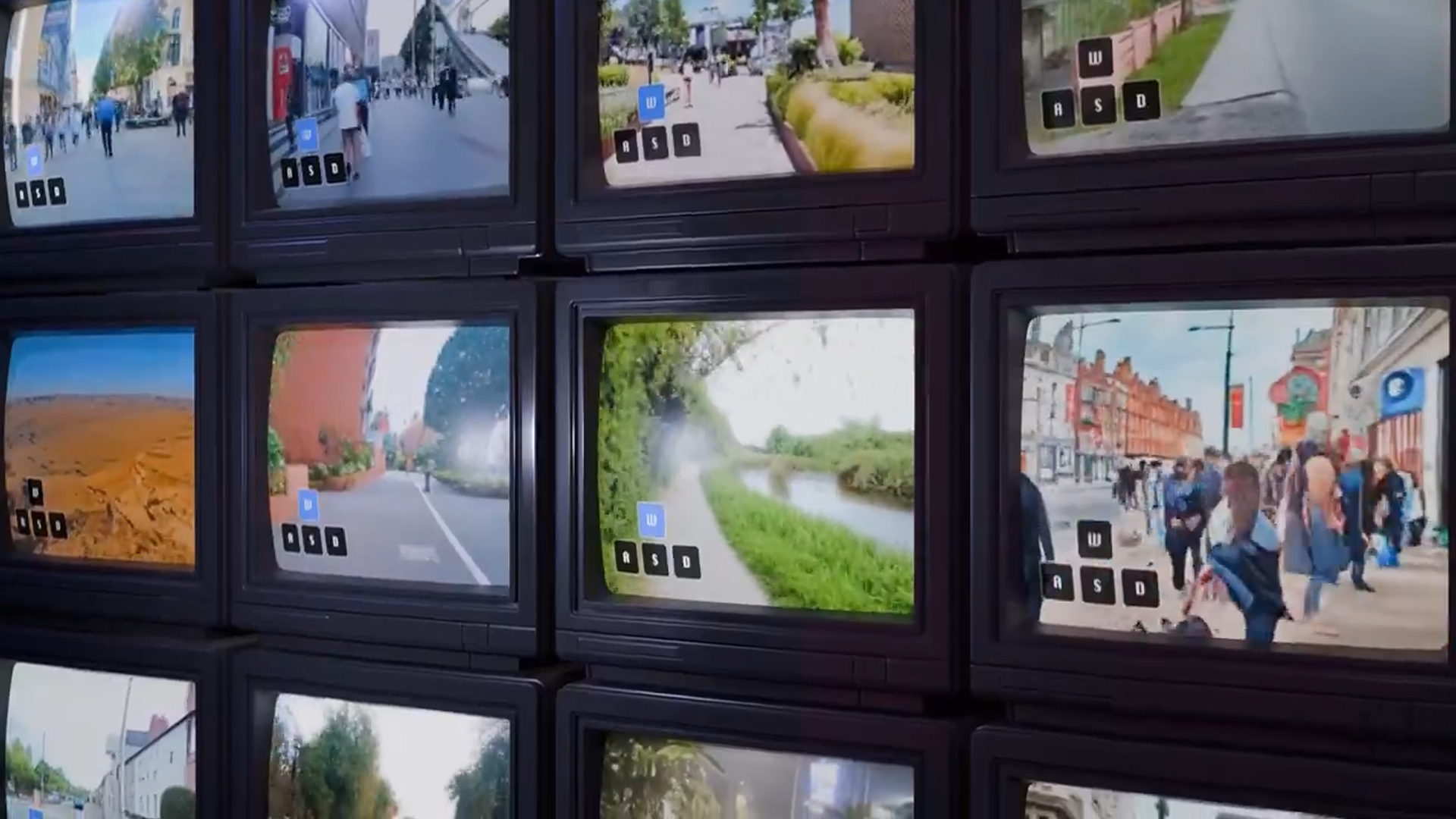I tried exploring a real-time generated AI world, and it was like walking through the uncanny valley
But it might be the future of gaming

Sign up for breaking news, reviews, opinion, top tech deals, and more.
You are now subscribed
Your newsletter sign-up was successful
Google Maps Street View and similar tools allow you to virtually navigate real-world locations from the ground, even if you can't interact with what you see. A new tool from AI startup Odyssey offers an experience in AI-generated locations that you can interact with, and it's produced in almost real-time.
Odyssey calls it "interactive video," an AI-powered world that reacts to your actions. You can visit the AI-made spaces, using your keyboard to explore a range of forests, stores, parking lots, and buildings that shift as you move.
The system guesses and shows new parts of the video so fast that it feels like a blend of a video game and a weird dream. The interactive video utilizes what Odyssey calls a “world model," which simulates a visual environment in response to your actions.
Unlike a traditional video game, where every texture, collision, and scenario is crafted ahead of time, Odyssey’s AI comes up with what you see on the fly. Every step you take prompts the AI to render a new frame, one that tries to make sense of your motion in context. It's essentially a video that responds like a video game.
Behind the scenes, the system generates a new video frame roughly every 40 milliseconds. That’s fast enough to make the experience feel fluid, even if it occasionally stutters or lags. The goal isn’t photorealism yet.
Odyssey is more interested in responsiveness. The idea is to have AI generate the story of your exploration as you move around, rather than relying on pre-written narratives.
Uncanny AI
You can see a clip of some of my exploration above. The low-resolution visuals combined with the ambient soundtrack made it seem like I was in a low-budget avant-garde film, or possibly about to be murdered and my case given to some quirky but brilliant European detective. The textures are soft and slightly blurry. Walls sometimes ripple. I even walked on water at one point.
Sign up for breaking news, reviews, opinion, top tech deals, and more.
But it is real, in the way an early 90s video game's graphics are realistic. It's like the terrible videos early cellphones shot, or how games like Doom and Quake look to my eyes after 30 years. Then again, Doom once looked like the future, and I took plenty of terrible videos on a flip phone just because I could and because I didn't care that each pixel was the size of a pea. Odyssey is still glitchy, but it is impressive, at least enough to prompt more than a few people to respond on social media, accusing the company of lying about what they had created.
Odyssey is well aware that they still have work to do. The company itself describes the experience as “a glitchy dream.” Or maybe the comparison should be a live improv show where you get called up on stage, as opposed to taking part in a polished and rehearsed play.
There are still many technical, ethical, and basic functionality questions to be answered, but assuming they are addressed to people's satisfaction, you can extrapolate a lot of interesting uses for Odyssey. With enough training data and fine-tuning, you could produce personalized experiences that adapt to your interests and style.
Imagine exploring that previously mentioned murder mystery where the characters react to your suspicions. Or a history lesson where Julius Caesar comments on your terrible toga-tying technique.
Then again, it could also mean advertisements where the product placement literally walks over to you to strike up a chat. Wobbly visuals, inconsistent physics, and a lack of story logic are significant hurdles, but this could be the shape of all kinds of entertainment.
You might also like

Eric Hal Schwartz is a freelance writer for TechRadar with more than 15 years of experience covering the intersection of the world and technology. For the last five years, he served as head writer for Voicebot.ai and was on the leading edge of reporting on generative AI and large language models. He's since become an expert on the products of generative AI models, such as OpenAI’s ChatGPT, Anthropic’s Claude, Google Gemini, and every other synthetic media tool. His experience runs the gamut of media, including print, digital, broadcast, and live events. Now, he's continuing to tell the stories people want and need to hear about the rapidly evolving AI space and its impact on their lives. Eric is based in New York City.
You must confirm your public display name before commenting
Please logout and then login again, you will then be prompted to enter your display name.